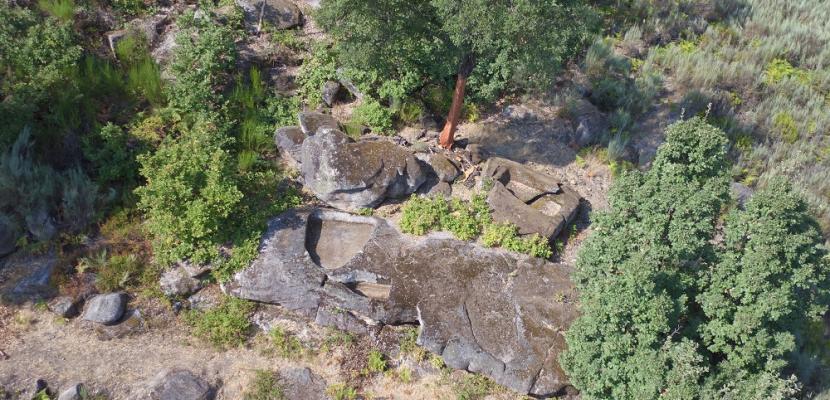Image

Rock Wine Mills
Published on 10 February 2020

Portugal
This is the good practice's implementation level. It can be national, regional or local.
About this good practice
The tradition of vineyards and wine production, in the region known as Trás-os-Montes, have a secular origin. Thus, since the Roman Civilization, the local populations were digging wine mills in the granite rocks, after used for the wine making.
Having the council of Valpaços, around 130 rock wine mills already identified, there have been an effort of different entities for its preservation, study and promotion. Its valorisation has been not only by some direct interventions on the field, but also by immaterial actions (national congress, definition of a touristic route, recreation of ancestral wine making techniques, etc.).
This process has been locally led by the Municipality of Valpaços and more recently (end of 2018), with the involvement of an association (LARUP), specifically created for this thematic. The association has its headquarters in Valpaços, but having a national intervention scope. It also there has been the participation on a Research & Higher Education Institution.
One of the limitation faced is related to the property regime, in which the wine mills are found. There are efforts done to involve the private landowners, in order to organize the heritage and its management and, potentially, prepare an application to UNESCO, for the recognition as World Heritage (probably involving other regions from Iberia Peninsula or even from other countries of the Mediterranean basin).
Having the council of Valpaços, around 130 rock wine mills already identified, there have been an effort of different entities for its preservation, study and promotion. Its valorisation has been not only by some direct interventions on the field, but also by immaterial actions (national congress, definition of a touristic route, recreation of ancestral wine making techniques, etc.).
This process has been locally led by the Municipality of Valpaços and more recently (end of 2018), with the involvement of an association (LARUP), specifically created for this thematic. The association has its headquarters in Valpaços, but having a national intervention scope. It also there has been the participation on a Research & Higher Education Institution.
One of the limitation faced is related to the property regime, in which the wine mills are found. There are efforts done to involve the private landowners, in order to organize the heritage and its management and, potentially, prepare an application to UNESCO, for the recognition as World Heritage (probably involving other regions from Iberia Peninsula or even from other countries of the Mediterranean basin).
Resources needed
There have been some small investments in the preservation of the surrounding spaces, installing signalization and for the creation of the Rock Wine Mills Route. These were ensured by own budget of the Municipality of Valpaços and some of the local parishes. It wasn’t possible to quantify amounts.
Evidence of success
The wine mills are permanent structures, built directly on the granite rocks, thus the main step for their safeguard is to care of the surrounding area, their registration and avoid mineral degradation. Were built centuries ago directly on the rocks, close to forests and vineyards. There is a total of 100 rock wine mills known, but the majority of them don’t have any touristic affluence and those who have are of groups with reduced number of persons. The international symposium (2017) 200 pax.
Potential for learning or transfer
The cave mills are present throughout the territory of the Mediterranean Basin where there is/existed the vine culture and wine production. In the case of the rock mills in the municipality of Valpaços, there is a high density of still existing and well preserved elements and its preservation and valorisation must necessarily involve the private owners, the municipalities, the regional structures in the area of certification and promotion of regional wines. With the creation of LARUP (Portuguese Association of Rock Wine Mills), the subject can reach in a short period a national and European dimention, since the rock wine mills are found in several other Portuguese councils and even in other Mediterranean countries. The recreation of the wine manufacturing process, the production of a wine certified for these processes and its connection to local gastronomy and other tourist valences (cycling, pedestrianism, religious tourism, etc.), can strengthen the economic economic transactions.
Further information
Website
Good practice owner
You can contact the good practice owner below for more detailed information.
Organisation
LARUP – Portuguese Association of Rock Wine Mills

Portugal
Norte
Contact
Mr.